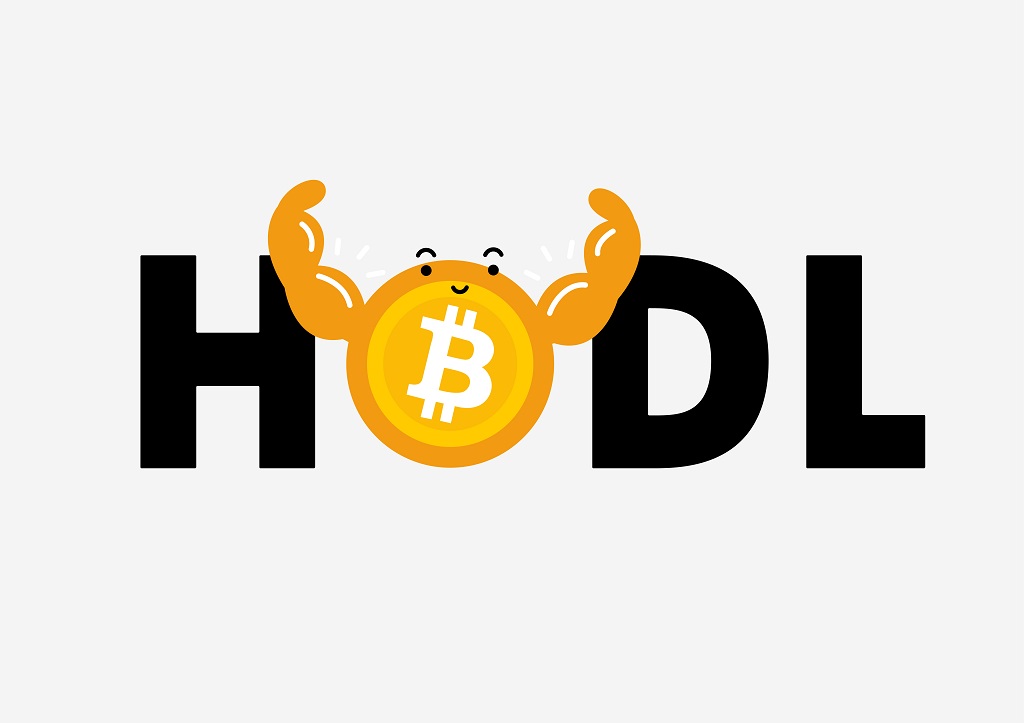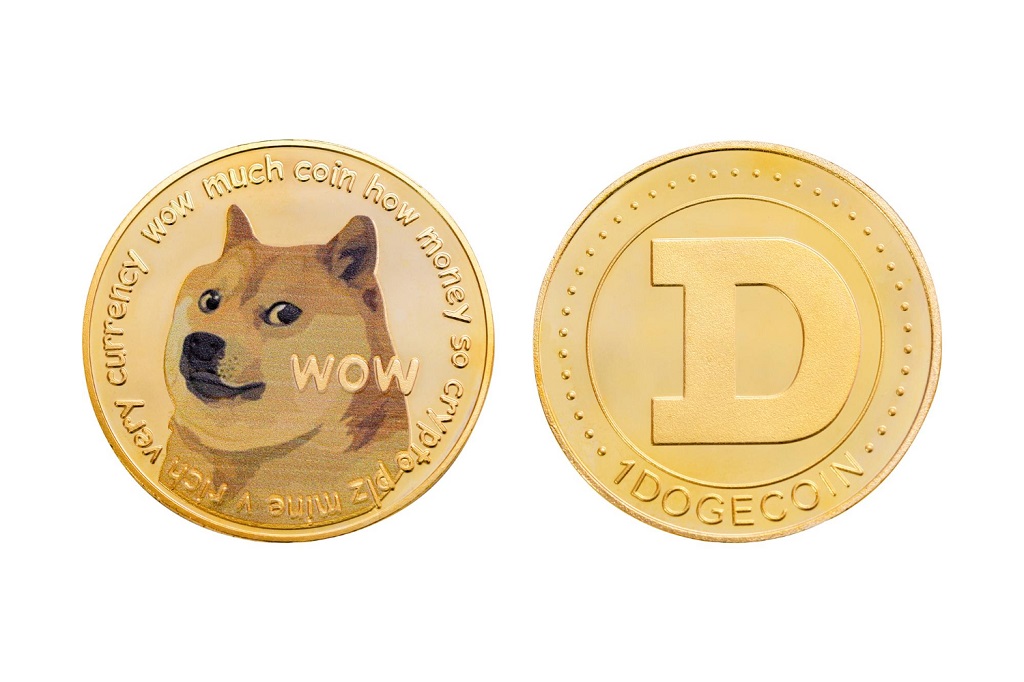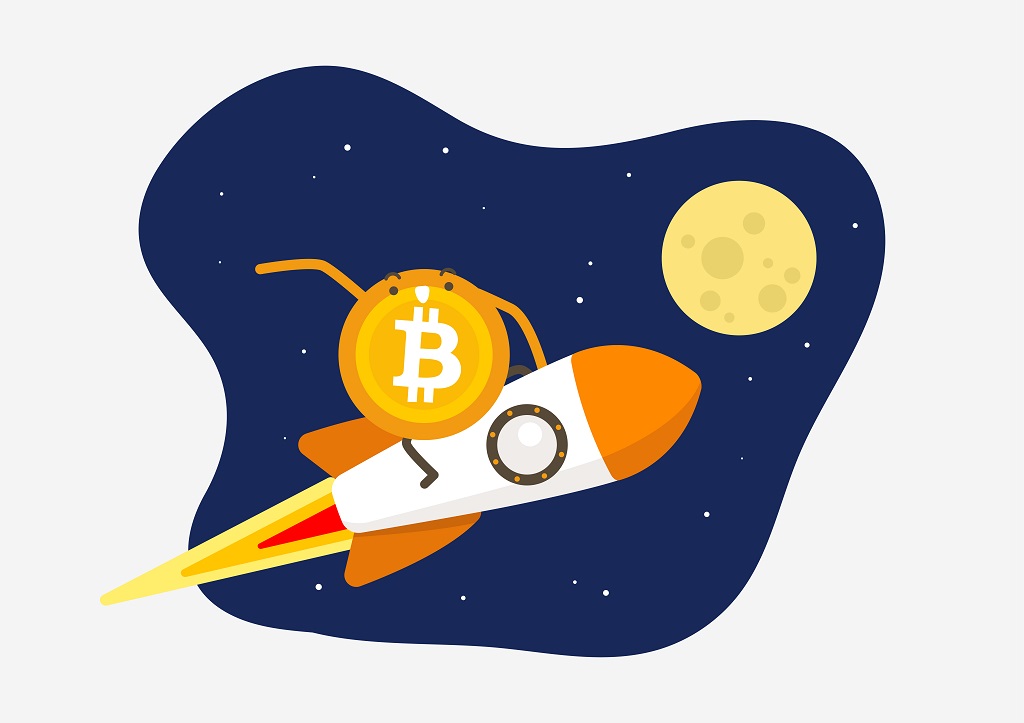In the ever-evolving world of cryptocurrency, understanding the language used in this sphere is crucial. This includes the unique jargon, or “crypto slang,” that has developed within the community. Both beginners and experienced crypto enthusiasts can benefit from a deeper understanding of these terms, as they provide insight into market trends, online discussions, and the culture surrounding cryptocurrency.
Table of Contents
The Origin of Crypto Slang
The world of cryptocurrency is not just about digital assets; it’s also about the culture that surrounds it. A significant part of this culture is the unique language or “crypto slang” that has developed within the community. This language is a collection of terms and phrases used by crypto enthusiasts to communicate about market trends, investment strategies, and the overall state of the crypto world.
A Brief History of Cryptocurrency and Crypto Slang
The history of crypto slang is intertwined with the history of cryptocurrency itself. When Bitcoin, the first cryptocurrency, was introduced by an anonymous entity known as Satoshi Nakamoto in 2009, it was a novel concept that few people understood. As more tech enthusiasts started exploring this new digital asset, they began to use specific terms to describe their experiences and the phenomena they observed in the market.

For instance, the term “HODL” originated from a misspelling in a 2013 post on the BitcoinTalk forum by a user who declared that he was “hodling” his BTC despite a serious market downturn. The term was quickly adopted by the community and is now used to describe the strategy of holding onto a cryptocurrency despite market fluctuations.
The Role of Online Communities in Shaping Crypto Slang
Online communities have played a significant role in shaping crypto slang. Platforms like Reddit, Twitter, and Telegram have become hotbeds for cryptocurrency discussions, with each community contributing its unique set of slang terms. These platforms have allowed for rapid dissemination and adoption of new terms, making them an integral part of the crypto culture.
For example, the term “moon” or “mooning” is often used in these communities to describe a cryptocurrency price that is expected to increase dramatically. It’s derived from the phrase “to the moon,” indicating the optimistic belief that the price will rise so high it will reach the moon.
The Influence of Major Events on Crypto Slang
Major events in the crypto world have also led to the creation of new slang. For instance, the term “DeFi,” short for decentralized finance, emerged during the rise of blockchain-based financial services. Similarly, the term “ICO,” which stands for Initial Coin Offering, became popular during the 2017-2018 boom of new cryptocurrency projects.
Common Crypto Slang Terms
The language of cryptocurrency is rich and varied, with a plethora of slang terms used by the community. Here’s an extensive list of some of the most common crypto slang terms and their meanings:
List of Common Crypto Slang Terms and Their Meanings
| Term | Definition |
|---|---|
| HODL | An acronym that stands for ‘Hold On for Dear Life.’ It refers to the act of holding a cryptocurrency despite market fluctuations. |
| FOMO | An acronym for ‘Fear Of Missing Out.’ It describes the anxiety that an exciting or interesting event may currently be happening elsewhere, often aroused by posts seen on social media. |
| Whale | A term used to describe an individual or organization that holds a large amount of a particular cryptocurrency. |
| Moon/Mooning | This term is used when the price of a cryptocurrency is experiencing a significant increase. |
| ATH | An acronym for ‘All-Time High.’ It refers to the highest price ever reached by a cryptocurrency. |
| FUD | An acronym for ‘Fear, Uncertainty, and Doubt.’ It’s often used to describe the act of intentionally spreading negative information about a coin to decrease its value. |
| Bagholder | A person who holds a large amount of a particular cryptocurrency, which has decreased in value, and continues to hold in anticipation of a market upswing. |
| Pump and Dump | A scheme where the price of a cryptocurrency is artificially inflated, or ‘pumped up,’ to attract investors. Once the price has increased, the coin is then ‘dumped’ by selling off, often resulting in a price crash. |
| Satoshi | The smallest unit of Bitcoin, named after Bitcoin’s creator, Satoshi Nakamoto. |
| REKT | A term borrowed from gaming slang, meaning to be devastated or destroyed. In crypto terms, it refers to an investor or trader who has been ruined financially from a large loss. |
| Bullish | A term borrowed from the stock market, used to describe a positive or upward market trend. |
| Bearish | The opposite of bullish, this term is used to describe a negative or downward market trend. |
| DeFi | An acronym for ‘Decentralized Finance.’ It refers to the use of blockchain technology to offer traditional financial services like loans and interest. |
| ICO | An acronym for ‘Initial Coin Offering.’ It refers to the first sale of a new cryptocurrency to the public, often used as a way to fund new projects. |
| Altcoin | Any cryptocurrency other than Bitcoin. |
| Shill | Promoting a cryptocurrency for personal gain. |
| DYOR | An acronym for ‘Do Your Own Research.’ It’s a reminder to not rely solely on other people’s advice when investing in cryptocurrency. |
| DApp | An acronym for ‘Decentralized Application.’ These are applications that run on a P2P network of computers rather than a single computer. |
| Gas | A term used in the Ethereum platform to refer to the fees required to successfully conduct a transaction or execute a contract. |
| Fork | A situation where a blockchain splits into two separate chains. Forks generally happen in the crypto world when new ‘governance rules’ are built into the blockchain’s code. |
| WAGMI | An acronym for ‘We’re All Gonna Make It.’ It’s a term of solidarity and optimism among crypto investors, indicating the belief that they will all succeed financially in the end. |
| NGMI | An acronym for ‘Not Gonna Make It.’ It’s the opposite of WAGMI and is used to suggest that someone will not succeed or profit in the crypto market. |
| RUGPULL | A type of scam where developers abandon a project and run away with investors’ funds. |
| NFA | An acronym for ‘Not Financial Advice.’ It’s a disclaimer often used in discussions about cryptocurrency to clarify that the information provided should not be taken as professional financial advice. |
| BUY THE DIP | A strategy where investors purchase more of a cryptocurrency when its price has significantly decreased with the expectation that it will rise again. |
| NORMIE | A term used to describe individuals who are not part of the cryptocurrency community or who follow mainstream trends. |
| FLIPPENING | A potential future event wherein Ethereum’s market cap surpasses Bitcoin’s. |
| WEAK HANDS | A term used to describe investors who sell their holdings at the first sign of price decreases. |
| DIAMOND HANDS | The opposite of ‘weak hands,’ this term is used to describe investors who hold onto their investments regardless of market fluctuations. |
| DEGEN | Short for ‘degenerate.’ In the crypto world, it’s often used to describe an investor who takes high risks, typically in DeFi or with meme coins. |
These terms represent just a fraction of the crypto slang out there. As the world of cryptocurrency continues to evolve, so does its language, reflecting the dynamic and vibrant nature of this digital frontier.
Examples of Crypto Slang in Context
Understanding crypto slang is one thing, but seeing how these terms are used in context can provide a clearer picture of their meaning and usage. Here are some examples:
- HODL: “Despite the recent dip in Bitcoin’s price, I’m going to HODL. I believe it will recover and reach new highs.”In this sentence, “HODL” is used to express the speaker’s intention to keep their Bitcoin despite its decrease in value, indicating their belief in its future recovery.
- FOMO: “When Ethereum started to skyrocket, I had serious FOMO and bought in at its peak.”Here, “FOMO” describes the speaker’s anxiety about missing out on the rapid price increase of Ethereum, leading them to buy at its peak.
- Whale: “A whale just moved 10,000 BTC to an exchange; we might see a big sell-off soon.”In this context, “whale” refers to an individual or entity with a significant amount of Bitcoin. The speaker is suggesting that this large movement of Bitcoin to an exchange could indicate an upcoming sell-off.
- Moon/Mooning: “With the recent news about its adoption by major retailers, it looks like Dogecoin is mooning.””Mooning” is used here to describe a significant increase in the price of Dogecoin, suggesting an optimistic outlook for its future performance.
- FUD: “There’s a lot of FUD being spread about the new crypto regulation, but I think it’s actually a positive step for the industry.”In this example, “FUD” refers to the negative information being spread about new crypto regulation. The speaker, however, disagrees with this sentiment and views the regulation as a positive development.
- Bagholder: “I bought a lot of this altcoin early on, but its value has plummeted. Now, I’m just a bagholder, hoping it will go up again.”The term “bagholder” here refers to the speaker holding a large amount of an altcoin that has decreased in value, with the hope that it will increase again in the future.
Crypto Slang in Different Communities

The language of cryptocurrency, or crypto slang, is not uniform across all platforms and communities. Different online communities have their unique set of slang terms, shaped by the platform’s culture, user demographics, and the specific cryptocurrencies they focus on.
Differences in Crypto Slang Across Various Online Platforms
For instance, Reddit, a platform known for its various subreddits dedicated to specific cryptocurrencies, has a rich array of crypto slang. Terms like “moon,” “HODL,” and “whale” are commonly used across these subreddits. However, certain terms might be more prevalent in one subreddit than another, depending on the specific cryptocurrency the subreddit focuses on.
Twitter, on the other hand, with its character limit and fast-paced nature, often sees the use of acronyms and abbreviations like “ATH” (All-Time High), “FOMO” (Fear Of Missing Out), and “DYOR” (Do Your Own Research). Twitter is also the birthplace of certain crypto slang terms, thanks to influential figures in the crypto world who use the platform to share their thoughts and predictions.
Telegram, a messaging app popular among crypto enthusiasts for its privacy features, also has its unique set of crypto slang. Telegram groups dedicated to specific cryptocurrencies often develop their own in-group language, which can include variations of common crypto slang or entirely new terms.
Influence of Different Cultures and Languages on Crypto Slang
Crypto slang is also influenced by the global nature of cryptocurrency. Cryptocurrency is not bound by geographical borders, and its investors and enthusiasts come from all around the world. This diversity is reflected in the slang used in different online communities.
For example, the term “Satoshi,” the smallest unit of Bitcoin, is derived from the name of Bitcoin’s creator, Satoshi Nakamoto, who is presumed to be Japanese. Similarly, certain English crypto slang terms might be translated or adapted differently in non-English speaking crypto communities, creating a unique set of slang terms for these communities.
Crypto Slang and Market Trends
Crypto slang is not just a language used by the cryptocurrency community; it’s also a reflection of market trends and sentiments. The terms and phrases used can often provide insights into the current state of the market and the attitudes of investors.
How Crypto Slang Reflects Market Trends and Sentiment
Certain crypto slang terms are directly tied to market trends. For instance, terms like “bullish” and “bearish” are borrowed from traditional finance and used to describe positive and negative market trends, respectively. When a cryptocurrency is “mooning,” it means the price is experiencing a significant increase, reflecting a positive market trend.
Sentiments and emotions in the market are also reflected in crypto slang. “FOMO,” or Fear Of Missing Out, describes the anxiety that investors may feel when they see a cryptocurrency’s price rising and worry that they are missing out on potential profits. On the other hand, “HODL,” or Hold On for Dear Life, reflects a strategy or sentiment of holding onto a cryptocurrency despite market volatility, indicating a long-term belief in its value.
Examples of Slang Terms That Emerged During Specific Market Events
New crypto slang terms can also emerge in response to significant market events. For example, the term “DeFi,” short for decentralized finance, gained popularity during the rise of blockchain-based financial services. Similarly, the term “rug pull” became common during a wave of scams in the DeFi space, where developers abandoned a project and ran away with investors’ funds.
Crypto slang serves as a barometer for market trends and sentiments. By understanding these terms, investors and enthusiasts can gain insights into the current state of the cryptocurrency market and the attitudes of its participants.
Understanding Crypto Memes
Memes have become an integral part of internet culture, and the cryptocurrency community is no exception. Crypto memes, often humorous and shared widely on social media, can serve as a form of communication, commentary, and even influence within the crypto world.
Explanation of Popular Crypto Memes and Their Origins

One of the most famous crypto memes is “Doge,” which features the image of a Shiba Inu dog accompanied by multicolored text in Comic Sans font. The meme became so popular that it inspired the creation of Dogecoin, a cryptocurrency that started as a joke but has since gained serious traction.
Another popular meme is “HODL,” which originated from a typo in a Bitcoin forum post. The term quickly became a meme within the crypto community and is now used to encourage holding onto a cryptocurrency despite market fluctuations.
How Memes Contribute to the Crypto Slang Vocabulary
Memes contribute significantly to the crypto slang vocabulary. They often start as inside jokes within the community but can gain wider recognition and even influence the market. For example, the term “To the moon!” originated from a meme and is now widely used to express optimism about a cryptocurrency’s potential price increase.

Memes can also serve as a form of commentary on market events. For instance, memes about “weak hands” and “diamond hands” became popular during market downturns, representing investors who sell off at the first sign of trouble versus those who hold onto their investments, respectively.
The Impact of Crypto Slang on the Broader Culture
Crypto slang, while originating within the niche community of cryptocurrency enthusiasts, has had a significant impact on broader culture. As cryptocurrency becomes more mainstream, so does its language, influencing the way we talk about finance, technology, and even societal trends.
Examples of Crypto Slang That Have Crossed Over into Mainstream Language
Several crypto slang terms have crossed over into mainstream language. For instance, “HODL” and “FOMO” are now used in contexts outside of cryptocurrency. “HODL,” originally a typo for “hold,” is used to express the act of holding onto an investment despite market volatility. “FOMO,” or Fear Of Missing Out, while not originating in the crypto world, has been widely adopted by it and is used to describe the anxiety of missing out on a profitable investment opportunity.
How Crypto Slang Influences Perceptions of Cryptocurrency
Crypto slang also influences perceptions of cryptocurrency. For those outside the community, the unique language can make the crypto world seem exclusive and difficult to understand. However, as these terms become more mainstream, they can help demystify cryptocurrency, making it more accessible to the average person.
Furthermore, the playful and often humorous nature of crypto slang, particularly memes, can make the serious and complex world of cryptocurrency more approachable and engaging. This can attract more people to learn about and participate in the crypto world.
Conclusion
Understanding crypto slang is essential for anyone involved in the cryptocurrency world. These terms provide insight into market trends, online discussions, and the culture surrounding cryptocurrency. By familiarizing yourself with crypto slang, you can better understand the crypto world and participate more effectively in its communities.
FAQs
What is crypto slang?
Crypto slang refers to the unique set of terms and phrases used within the cryptocurrency community.
Why is understanding crypto slang important?
Understanding crypto slang can provide insight into market trends, online discussions, and the culture surrounding cryptocurrency.
Where did crypto slang originate?
Crypto slang originated within online cryptocurrency communities and has evolved over time.
How does crypto slang reflect market trends?
Crypto slang often mirrors market trends and sentiments, with new terms emerging in response to significant market events.
Does crypto slang influence the broader culture?
Yes, some crypto slang terms have crossed over into mainstream language, reflecting the growing influence of the crypto world.


